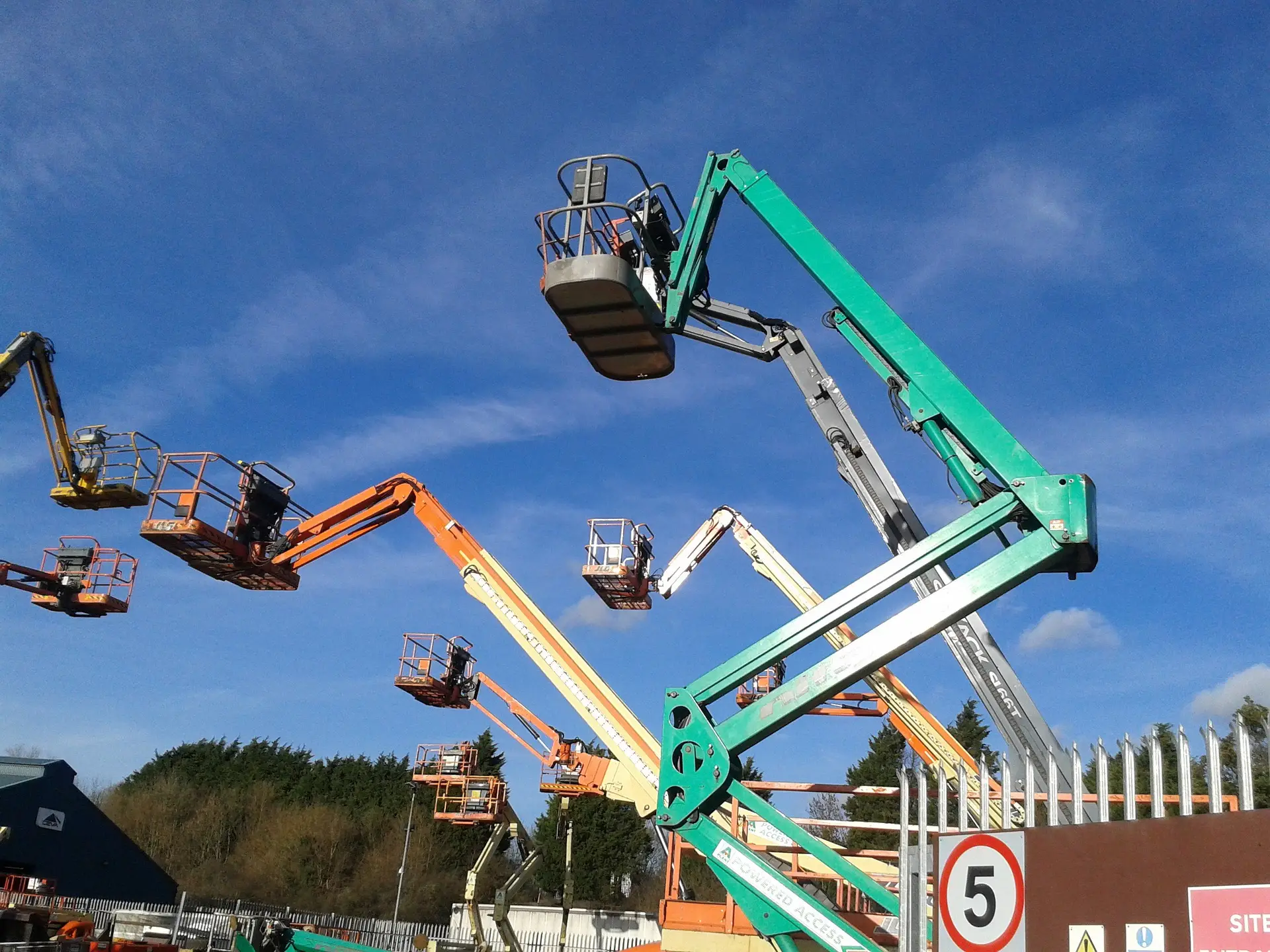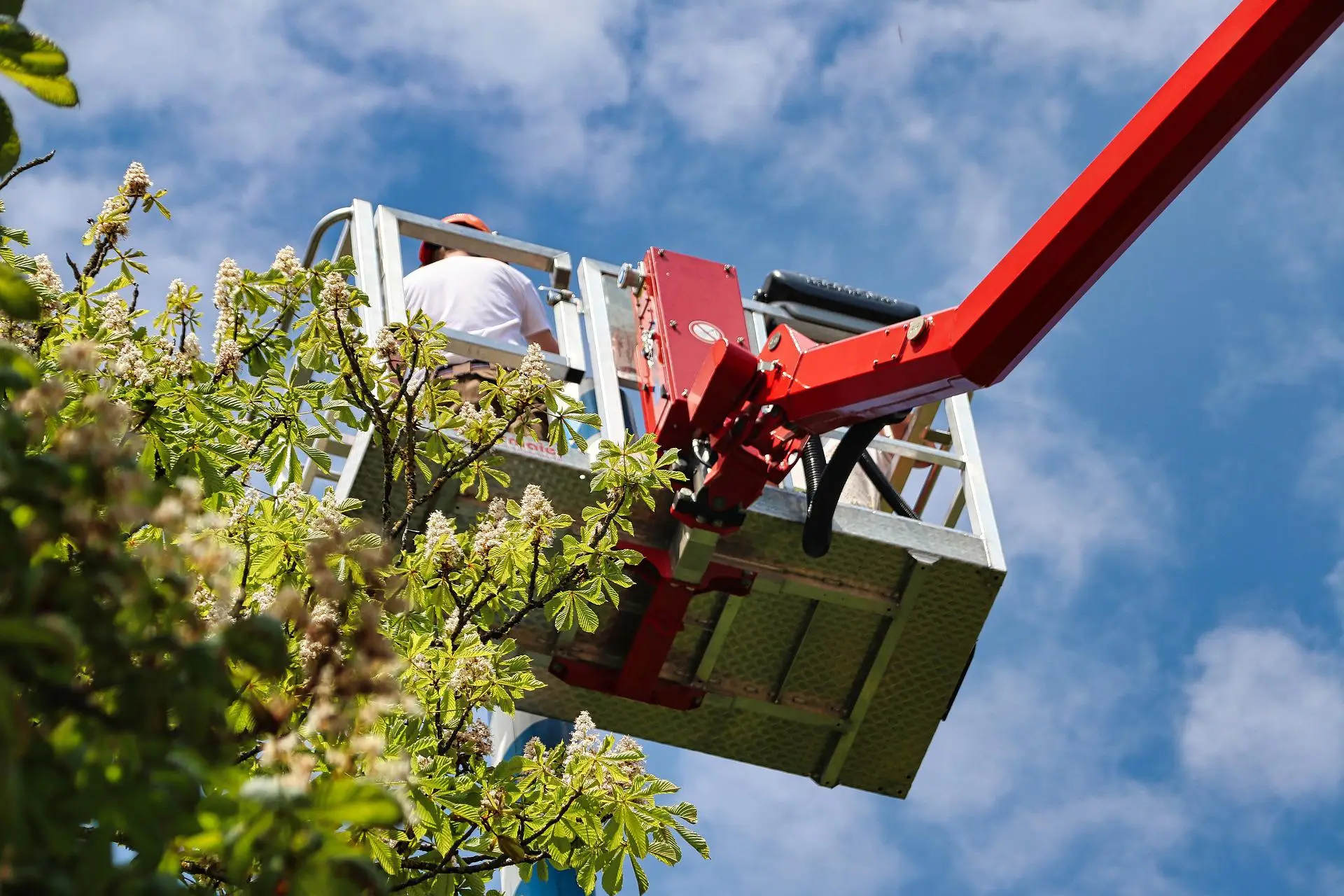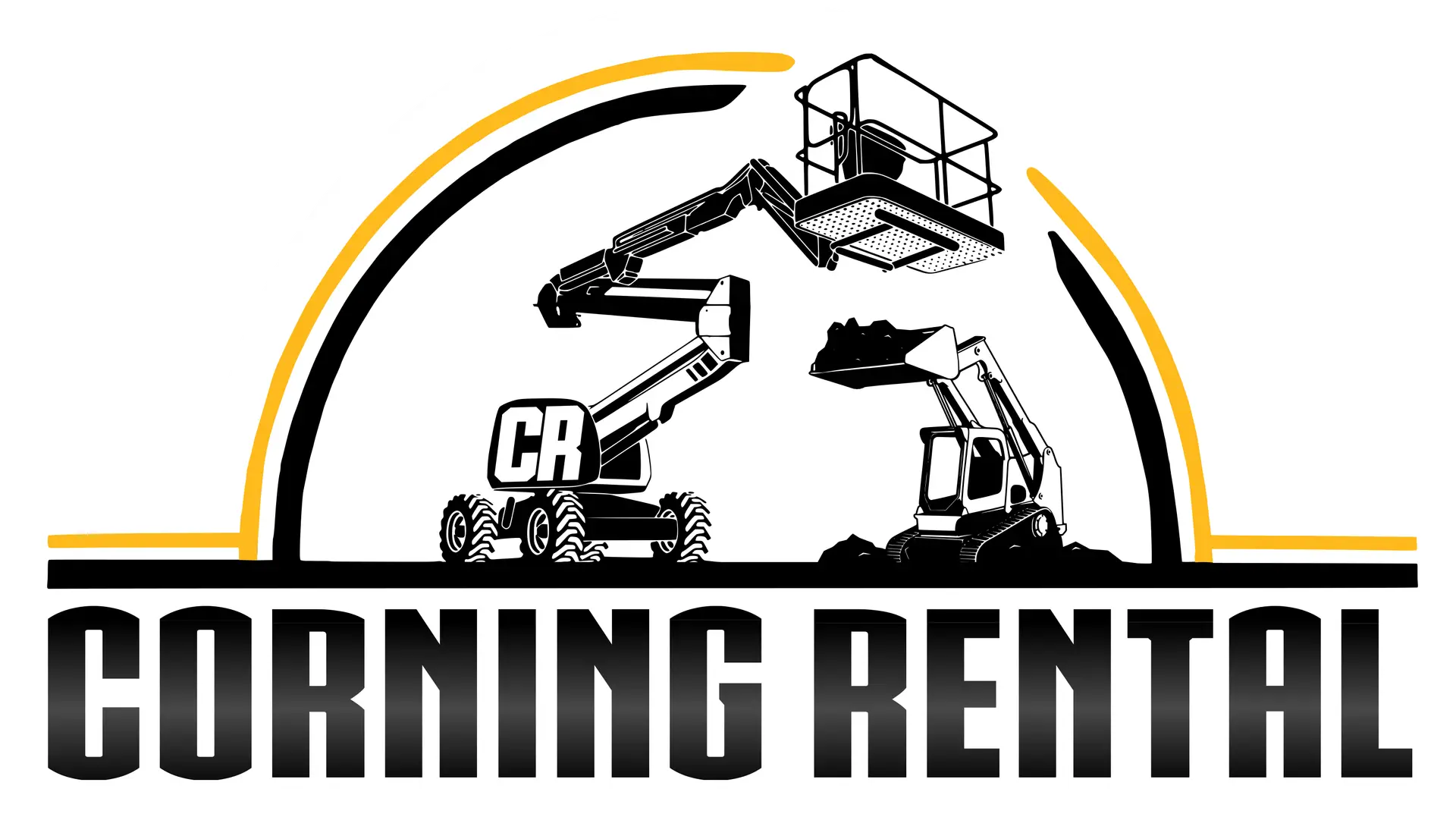Safely Soaring: A Guide to Using Aerial Equipment in Southwest Iowa
In various industries, the use of aerial equipment, including boom lifts, manlifts, and scissor lifts, has become indispensable for reaching heights and accessing elevated workspaces. Whether you own the machinery or opt for equipment rental from Corning Rental, safety should always be a top priority. In this guide, we’ll explore essential safety tips for using aerial equipment, whether through ownership or equipment rental in Corning, Red Oak, Glenwood, or Shenandoah, Iowa.

Pre-Operation Safety Checks
Before ascending to new heights in Des Moines, IA or Omaha, NE for example, it’s imperative to conduct thorough pre-operation checks on the aerial equipment, whether it’s part of your fleet or acquired through equipment rental. This step ensures that the machinery is in optimal condition and minimizes the risk of unexpected malfunctions in Glenwood, Iowa. Here’s a checklist to guide your pre-operation inspection:
- Controls: Verify that all controls are functioning correctly, and there are no signs of wear or damage.
- Hydraulics: Check hydraulic systems for leaks and ensure smooth operation.
- Tires: Inspect the condition of tires, looking for any wear, punctures, or damage.
- Safety Features: Test emergency brakes, alarms, and other safety features to ensure they are operational.
- Manufacturer Guidelines: Adhere to the manufacturer’s guidelines and recommended maintenance schedules for the specific aerial equipment in use, whether it’s part of your fleet or acquired through equipment rental.
When renting aerial equipment like boom lifts, manlifts, and scissor lifts from Corning Rental in Corning, Shenandoah, Red Oak, or Glenwood, be sure to ask our staff about any safety precautions you may have questions about prior to operating the equipment.
Operator Training and Certification
The importance of proper training for operators cannot be overstated. Operators should undergo comprehensive training programs specific to the type of aerial equipment they will be operating, whether it’s owned or obtained through equipment rental. Certification and ongoing education are essential components of ensuring operators have the knowledge and skills to operate the equipment safely in Glenwood, Omaha, Bartlett, Bedord, Clarinda, and surrounding areas.
Site Assessment and Planning
A thorough site assessment is a critical step in promoting safety when using aerial equipment in Glenwood or Hamburg, whether it’s from your own fleet or acquired through equipment rental. Before deploying the equipment, consider the following:
- Ground Stability: Ensure that the ground is stable and capable of supporting the weight of the equipment.
- Overhead Obstacles: Identify and mark overhead obstacles, such as power lines, to prevent collisions.
- Proximity to Power Lines: Maintain a safe distance from power lines to avoid electrocution hazards.
- Communication: Foster communication and collaboration among team members to enhance overall situational awareness on the site.
Safe Operating Practices
Regardless of the type of aerial equipment in use, whether it be in Glenwood, Bellevue, or Plattsmouth, certain general safety guidelines apply whether you own the machinery or have opted for equipment rental:
- Personal Protective Equipment (PPE): Operators should wear appropriate PPE, including hard hats, safety harnesses, and high-visibility clothing.
- Load Capacity Guidelines: Respect load capacity guidelines to prevent overloading, which can compromise the stability of the equipment.
Specific Considerations for Each Type of Equipment
Manlifts:
- Follow proper entry and exit procedures.
- Use fall protection systems, such as guardrails and personal fall arrest systems.
Scissor Lifts:
- Keep the scissor lift on stable ground and avoid slopes.
- Be cautious when driving a scissor lift, especially when elevated.

Emergency Procedures
Even with meticulous planning and adherence to safety protocols, emergencies can occur. Preparedness is key to minimizing risks. It is imperative that you communicate with our staff at Corning Rental and establish and communicate clear emergency procedures to operators, including…
- Equipment Malfunction: In the event of equipment malfunction, operators should know how to safely bring the equipment back to the ground.
- Power Failure: Develop procedures for safely lowering the equipment in case of a power failure.
- Weather Changes: Monitor weather conditions and have protocols in place for sudden changes, such as high winds or thunderstorms.
Safety should always be at the forefront when using aerial equipment rentals in Glenwood, Bellevue, Plattsmouth, Omaha and the surrounding areas. By conducting thorough pre-operation checks, providing proper training, assessing and planning for the specific site, following safe operating practices, and preparing for emergencies, operators can contribute to a secure work environment.
Share these safety tips with your colleagues and industry peers to promote a culture of safety, whether they own the equipment or opt for equipment rental from Corning Rental. Ongoing education and training are crucial components of ensuring a safe and productive work environment in Glenwood, Plattsmouth, Red Oak, and Shenandoah. Stay informed and prioritize safety in all aerial equipment operations.
You can view our aerial equipment rentals for Glenwood, Omaha, Des Moines, Red Oak, Shenandoah, and Corning, by clicking this link to reserve your aerial lift rental with us online.
